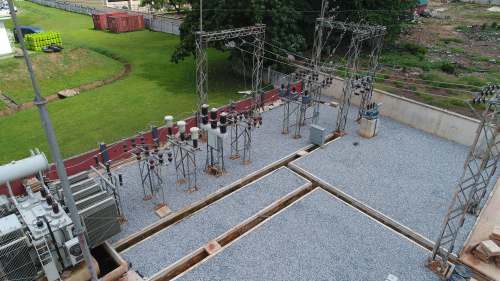Economy
Power, Still in Need of a Leg-up – Coronation Merchant Bank

Power shortages remain a prominent infrastructure gap in Nigeria. For businesses located in Nigeria, self-generation places pressure on operating expenses. Household wallets are also significantly affected by the same expense. The availability of power is a catalyst to boosting levels of industrial activity for economic development. The FGN estimates national energy demand at c.28,000 megawatts (MW).
Therefore, improving power sector performance, particularly in manufacturing and services will be central to unlocking economic growth post COVID-19. Several African countries suffer from insufficient electricity generation capacity as well as inadequate and poorly maintained transmission and distribution networks that significantly affect their socio-economic activities. Based on data from the International Energy Agency (IEA), in 2019, 81% of the African population had access to electricity in urban areas while only 37% had access to electricity in rural areas.
Turning to the Nigerian electricity landscape, according to the latest Tracking SDG7 report, about 89 million Nigerians (45% of the population) have no access to electricity. The World Bank estimates that Nigeria suffers an annual economic loss due to unreliable power supply at between 5-7% of the country’s GDP.
There is uncertainty around the exact number of back-up generators in the country. Some studies have estimated that Nigeria could have as much as 15,000MW installed capacity of power generators. Other studies have put the installed generator capacity in Lagos alone at around 16,000 MW. These generators range from small 0.5 KVA for a small kiosk to large 75 KVA / 60 kW generators servicing residential estates and industries across the country.
The Transmission Company of Nigeria (TCN) disclosed that the power sector recorded national peak generation of 3,844.3MW on 01 November ‘21, compared with 5,802MW recorded in 01 March ’21.
Metering remains a challenge. To attempt to solve this issue, the FGN plans to provide up to 4 million meters to Nigerians in the second phase of its National Mass Metering Programme (NMMP). The first phase of the initiative has led to the distribution of about 750,000 meters nationwide within eight months. This is an improvement with regards to installation speed given that the preceding Meter Asset Provider (MAP) programme recorded 350,000-meter installations in over 18 months.
According to the Nigerian Bulk Electricity Trading Company (NBET), the electricity distribution companies (DISCOs) remitted revenues totalling N91.3bn to the NBET in Q2’21. This is a 22.6% decline from the N111.8bn recorded in the previous quarter. The decline in revenues from the 11 DISCOs can be partly attributed to poor power supply in Q2 ‘21. The decline in revenue can also be attributed to the high technical and commercial losses that have been exacerbated by energy theft as well as consumers’ apathy to payments under the prevailing practice of estimated billing.
A better energy mix of non-renewable and green energy will accelerate the process of attaining access to power for all. The FGN targets 30% of national energy to come from renewables by 2030. In April 2021, the FGN began implementing its plan to deliver electricity through solar energy to about 25 million Nigerians whose communities are off the national power grid through the Solar Power Naija programme. The initiative aims to create five million connections through a N140bn financing programme.
Furthermore, the European Union granted an additional EUR15m (USD17.4m) to fund the second phase of Nigeria’s renewable energy and energy efficiency sector under the Nigerian Energy Support Programme (NESP). Additionally, the Agence française de développement (AFD) recently invested c.USD70m to fund renewable energy and efficient energy projects in the country to bridge the nation’s power needs and reduce environmental pollution. The AFD fund could guarantee electricity supply to c.80 million Nigerians affected by power shortages.
The lack of reliable power supply has stifled economic activity, private investments, and job creation. An industrial take-off, which will be supported by improved power supply, is required if Nigeria is to achieve sustainable double-digit GDP growth. Forward steps should also be taken to modernise power infrastructure (with particular emphasis on transmission), reduce the Aggregate, Technical, Commercial and Collection (ATC&C) losses, as well as increase transparency and contract enforceability through enhanced regulatory oversight.
Increased investments targeted towards boosting renewable energy generation would also assist with increasing productivity in sectors like agriculture and manufacturing.